Obliging Young Lady

Brief Synopsis
Cast & Crew
Richard Wallace
Joan Carroll
Edmond O'brien
Ruth Warrick
Eve Arden
Robert Smith
Film Details
Technical Specs

Synopsis
Reporter "Red" Reddy mesmerizes his fellow New York- bound passengers by repeating the phrase "hy menush" to the clack of the train wheels. Red is himself mesmerized when Linda Norton boards the train, but she rejects his advances. When Linda is met at the New York station by her suitor, insurance salesman Charles Baker, Red glances at her luggage tags and jots down her name. Upon returning from vacation, Linda, a secretary to attorney Markham, goes to the office, where she learns that her boss is enmeshed in a custody suit for little Bridget Potter. Because Bridget's prominent parents are squabbling over her, the judge awards Markham custody, and he entrusts the care of the little girl to Linda. Meanwhile, Red, who has called every Linda Norton in the phone book in search of his dream woman, decides to quit his job as a reporter to write the great American novel. When fellow reporter "Space" O'Shea suggests that he retreat to the mountains to write his masterpiece, Red makes plans to visit Lake Mohawk. Linda also decides to travel to Lake Mohawk to remove Bridget from the custody battle, and Bridget meets Red on the train to the lake. When Linda and Bridget arrive at the lodge posing as sisters, Linda is appalled to discover that Red is also a lodger at the lake. Soon after their arrival, a private detective visits the lodge in search of Bridget, and the little girl tells him that Red is her father, the African explorer Professor Stanley, and Linda is her mother. After Linda reluctantly agrees to continue the ruse, Charles, who saw Red board Linda's train, bursts into the hotel and finds the "Stanley" family. Although Linda explains the deception to Charles, he insists upon remaining at the lake. Despite Charles' presence, Red continues romancing Linda, telling her that he is a novelist. Back in New York, Space determines to find Bridget and scoop the custody battle story. Pretending to be Linda's cousin, Space tricks Markham into revealing that Linda is at Lake Mohawk. She leaves for the lake immediately, arriving just after the Migratory Bird Club. Amid bird calls, Space tells Linda that Red is a reporter, leading her to believe that Red has been romancing her for a story. As Red tries to prevent Space from phoning in her story, Charles drives Bridget and Linda back to the city. Bridget, determined to reconcile her "parents," incites Charles to speed, and the three are arrested and taken to the courthouse, where Bridget insists that the judge call her "father", Red Stanley. After instructing the judge to detain his "wife and child," Red calls the Potters, and they all meet at the courthouse. There the Potters pretend to be a big happy family, thus quashing Space's story. Space then sets her sights on Charles, and Red and Linda marry. On their train trip to Niagara Falls, the conducter advises them to repeat the phrase "hy menush" to overcome insomnia.

Director
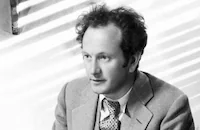
Richard Wallace
Cast

Joan Carroll

Edmond O'brien
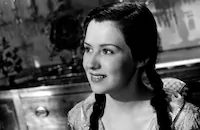
Ruth Warrick
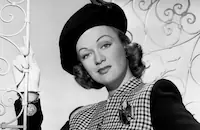
Eve Arden
Robert Smith
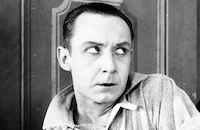
Franklin Pangborn

Marjorie Gateson

John Miljan
George Cleveland
Luis Alberni

Charles Lane

Fortunio Bonanova
Andrew Tombes
Almira Sessions

Pierre Watkin
Florence Gill
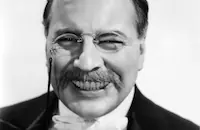
Sidney Blackmer
Virginia Engels
George Watts
Jed Prouty
George Chandler
Dick Rush
Hal K. Dawson
Dudley Dickerson
Fred "snowflake" Toones
Norman Mayes
Dora Clemant
John Dilson
Charles Peck
Cecil Weston
Joe Bernard
Ruth Cherrington
Isabelle La Mal
James Carlisle
Jack Richardson
Gloria Whitney
Jean Acker
Walter Anthony Merrill
John Sylvester
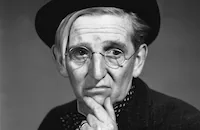
Jimmy Conlin
Max Wagner
George Lloyd
Vera Marshe
Harry Harvey
Paul Lepere
Ralph Sanford
Frank M. Thomas
John Farrell
Emory Parnell
Ted Oliver
Eddie Parker
Mickey Simpson
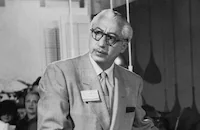
Benny Rubin
Ernie Stanton
Nora Cecil
Count Cutelli
Dot Farley
Ronnie Rondell
Marion Darlington
C. C. "tex" Gilmore
Mary Lawrence
Eddie Borden
Murray Alper
Crew
C. Bakaleinikoff
Howard Benedict
Henry Berman
Jerry Cady
Carroll Clark
Albert D'agostino
Bert Granet
Arthur T. Horman
J. R. Mcdonough
Hugh Mcdowell Jr.
Nicholas Musuraca
Renie
Sam Ruman
Frank Ryan
Vernon L. Walker
Roy Webb

Film Details
Technical Specs

Articles
Obliging Young Lady -
No less than four screenwriters (Arthur T. Horman, Frank Ryan, Bert Granet, and an uncredited Jerome Cady) worked on this tangled tale of assumed identity, spicing it up with chases, hijinks, and moments of inspired absurdity, like when Red enthralls a railroad dining car by reciting the onomatopoeic name of left fielder "Heinie Manush" in time with the whoosh of the locomotive, creating a mass hypnosis that predates The Music Man (1962) and its similarly syncopated "Rock Island" train number ("Look, whaddya talk, whaddya talk, whaddya talk?")
Obliging Young Lady is notable for containing many early performances from a cast of character actors who never quite became stars, but whose presence added zing to every later project they joined. Edmond O'Brien, a member of Orson Welles' Mercury Players, was too solid and jowly to be a matinee idol, but he could layer a cynical, weathered glaze over everyman roles -- a quality that would serve him well in later noir like D.O.A. (1950) and The Killers (1946). Ruth Warrick, another of Welles' discoveries (she read opposite the director in the audition -- a practice she naively didn't realize was unusual -- before being cast as first wife Emily Monroe Norton in Citizen Kane (1941)) found later fame as the long lived -- and much hated -- Phoebe Tyler on television's All My Children. Eve Arden (a few short years away from her Academy Award nomination for Mildred Pierce (1945)) added her uniquely hard and tart way with a comic rejoinder to exchanges like when, after being urged to quit her job "and marry some substantial dope" she quips back "Why don't you get substantial, dope?" And Joan Carroll, the talented youngster RKO was hoping to groom as their own Shirley Temple after her triumphant appearance in Broadway's Panama Hattie (1940) with Ethel Merman, later appeared in Meet Me In St. Louis (1944) with Judy Garland. Strangely, the same year RKO made Obliging Young Lady, MGM brought Panama Hattie to the screen, snubbing both Carroll and Merman to reprise their stage roles and giving the lead instead to Ann Sothern.
RKO hyperbolically billed Obliging Young Lady as a "fast moving romantic comedy, crammed with laugh-provoking situations, but Variety was skeptical, predicting instead "very little box office value". But a more impressed New York Times praised this film as "ample proof . . . that good things sometimes come in small packages."
By Violet LeVoit
Sources:
Donnelley, Paul. Fade to Black: A Book of Movie Obituaries
T.M.P. "Obliging Young Lady (1941) At the Palace" New York Times, February 13, 1942
Tucker, David C. Eve Arden: A Chronicle of All Film, Television, Radio and Stage Performances
Krebs, Albin. "Eve Arden, Actress, Is Dead at 83; Starred in TV's 'Our Miss Brooks'" New York Times, November 13, 1990

Obliging Young Lady -
Ruth Warrick (1915-2005) - Ruth Warrick, (1915-2005)
She was born on June 29, 1915 in St. Joseph, Missouri. After attaining a degree in theatre from the University of Kansas City, she left for New York, where in 1938, she joined the Mercury Theater troupe, headed by a young artist on the rise by the name of Orson Welles. When Welles prepared to film Citizen Kane (1941) he took several players from his Mercury Theater (Joseph Cotten, Everett Sloan, Agnes Moorehead) and of course, Ruth Warrick. She made her film debut in Welles' cinematic epic as Emily Norton Kane. Indeed, to many film buffs, Warrick's icy charms are indispensable to the celebrated montage sequence opposite Welles at the breakfast table; particularly when he broaches the subject of her husband's infidelity:
Emily Kane: Charles, people will think...
Charles Kane: What I tell them to think!
Warrick received fine reviews for her performance, and she had good roles in her next two films The Corsican Brothers (1941), with Douglas Fairbanks Jr., and Journey Into Fear (1942), opposite Joseph Cotton. Sadly, Hollywood, not knowing what to do with a well-trained, mature actress like Warrick, began to cast her into routine, forgettable fare: Mr. Winkle Goes to War (1944), China Sky (1945), and Swell Guy (1946). Disney's Song of the South (1947), was a box-office hit, and was her best film in a while, but overall, the material she received over the next few years, simply wasn't worthy of her talents.
Things turned around for her in the mid-50s, when Warrick discovered the medium of television. She had regular roles on The Guiding Light (1953-54), As the World Turns (1956-60), Father of the Bride (1960-61), and was unforgettable as the sinister housekeeper, Hannah Cord, in Peyton Place (1965-67). Yet it was her 35-year run in the role of Phoebe Wallingford in All My Children (1970-2005), that Warrick achieved her greatest triumph. As the rich, intrusive matriarch of the fictitious, affluent town known as Pine Valley, Warrick found a role that could be at once gloriously hammy and quietly conniving - qualities that highlighted her renown versatility as an actress. To honor her contribution to television, Warrick received a lifetime achievement award from the Daytime Emmys last December. She is survived by three children, a grandson, and six great-grandchildren.
by Michael T. Toole
Ruth Warrick (1915-2005) - Ruth Warrick, (1915-2005)
Quotes
Trivia
Notes
According to a 1940 news item in Los Angeles Times, Anne Shirley was considered for the lead in this picture and Jerry Cady was assigned to write the screenplay. An early Hollywood Reporter production chart also credits Cady with screenplay, but his contribution was later downgraded to contributor to treatment by Screen Achievements Bulletin. A Hollywood Reporter news item notes that Edmond O'Brien replaced James Craig in the role of "Red Reddy" when Craig was reassigned to appear in the film Unexpected Uncle (see below). This picture was Ruth Warwick's first assignment under her RKO contract. Warwick had initially come to the studio to appear in Orson Welles' Citizen Kane. The Variety review erroneously listed camerman Nicholas Musuraca as Michael Musuraca.














